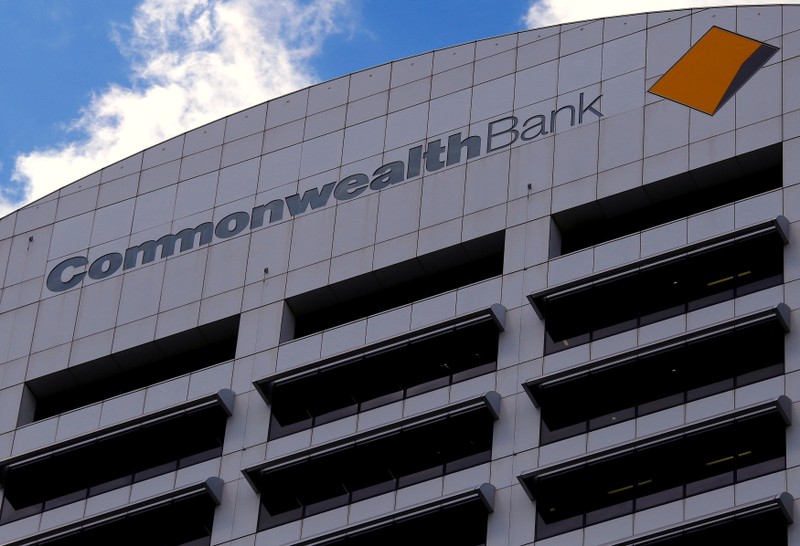
FILE PHOTO: The logo for the Commonwealth Bank of Australia adorns their head office in central Sydney, Australia, October 12, 2017. REUTERS/David Gray/File Photo
February 7, 2018
By Colin Packham and Byron Kaye
SYDNEY (Reuters) – Australia has given its financial regulator sweeping powers to cap bank bosses’ pays, delay their bonuses and even ban them from the industry if found guilty of non-compliance, as it scrambles to restore trust in the scandal-hit sector.
The move underscores the immense pressure on the government of the world’s No.12 economy to keep a tight grip on an industry which, in recent years, has faced accusations of withholding legitimate health insurance payouts, giving misleading financial advice and rigging interest rates.
The series of scandals has cost Australian banks, among the most profitable in the world, hundreds of millions of dollars in fines and moved the government to launch a far-reaching inquiry, or a royal commission, which begins next week and has the power to recommend criminal charges.
Under the new law passed by the Senate on Wednesday, banks must do business with “honesty and integrity” and their senior executives will be held directly accountable for non-compliance.
“This legislation is part of a broader suite of financial services reforms … to put consumers first, ensuring Australians can have trust and confidence in the banking system,” Treasurer Scott Morrison said in an emailed statement.
The Australian Prudential Regulatory Authority (APRA) can cap and delay executive bonuses, disqualify executives from the industry and levy fines of up to A$210 million ($166 million).
Shareholders and investors have been disappointed with the high salaries banks’ top brass have been drawing even as worries about the integrity of the sector mount.
In 2017, the outgoing chief of Commonwealth Bank, which is embroiled in a money-laundering scandal, saw his total pay slashed by more than half to A$5.5 million, a reduction many thought did not go far enough.
The CEO of top investment bank Macquarie Group, known as the “millionaires’ factory” because its lofty executive pay, took home A$18.7 million the same year.
A spokesman for the Australian Bankers’ Association, which the country’s major banks use as a spokesman for industry-wide matters, had no immediate comment on the Senate’s legislation.
REGULATOR REBUKED
The Senate’s measure comes after a report from the country’s chief economic advisory body accused APRA of creating an environment that promoted record profits over the interests of customers and failing to stimulate competition.
The Productivity Commission also said a three-decade-old law stopping takeovers between the so-called “Big Four” banks was outdated and should be removed.
It will hand in its final report by July 1.
A spokesman for Treasurer Morrison said the government would then consider its response.
Australia’s big banks – CBA, National Australia Bank Ltd, Australia and New Zealand Banking Group and Westpac Banking Corp – reported a combined net profit of about $25 billion in the 2017 fiscal year, up 6.4 percent on a year ago, according to KPMG.
CBA, the biggest of the “Big Four”, is defending allegations by Australia’s anti-money laundering agency that it allowed thousands of suspicious transactions to pass through its systems, including failing to report attempts to wire money by an individual convicted of terror-related offences.
APRA said it welcomed the Commission’s draft report.
“We have actively engaged with the Commission in the preparation of the draft report and we will continue to do so as it prepares its final report,” an APRA spokesman said.
(Reporting by Colin Packham and Byron Kaye; Editing by Himani Sarkar)

